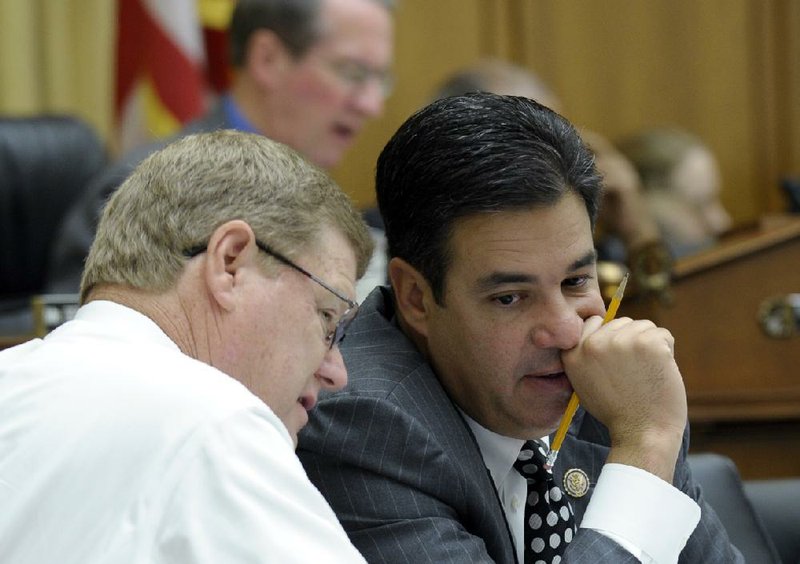WASHINGTON - Senate Majority Leader Harry Reid said Wednesday that he will take the “strong bipartisan” immigration bill approved by the Senate Judiciary Committee to the chamber’s floor in June.
He said that the legislation, which would be the biggest change to U.S. immigration law in a generation, “will make our country safer and help 11 million undocumented immigrants get right with the law.”
The committee approved the measure Tuesday, 13-5, after adopting an amendment from Republican Sen. Orrin Hatch on visas for highly skilled foreign workers. It was among the compromises Democratic panel members made in an attempt to strengthen the legislation’s appeal to Republicans.
“The bill has moved to the right in the committee and that will help its chances on the floor and put it in a better position as it moves to the House of Representatives,” said Alex Nowrasteh, an immigration analyst at the libertarian Cato Institute in Washington.
The legislation seeks to balance a path to citizenship for an estimated 11 million illegal aliens in the U.S., sought by Democrats, with enough border-security improvements to satisfy Republicans. It was written by a group of four Republican and four Democratic senators.
Republican Sens. Jeff Flake of Arizona and Lindsey Graham of South Carolina, among the bill’s authors, worked with Democrats to adopt about 100amendments while defeating others they thought could undermine its prospects before the full Senate and in the Republican-led House. That included an attempt by Sen. Charles Grassley, R-Iowa, to make a path to citizenship contingent on securing the U.S. border.
“Members of the group that put this together have stood together and voted against amendments that they felt would be a violation of the bipartisan agreement,” said Sen. Dianne Feinstein, D-Calif., who sits on the committee.
In 2007, the last time Congress tried to enact a major revision of immigration law, a number of lawmakers switched their votes on the Senate floor because of amendments they couldn’t support, she said.
Republicans in both chambers have said they will reject border security enhancements they deem insufficient and a measure creating a temporary worker program they consider too limited for U.S. companies that need more lower-skilled workers.
Labor unions and other groups Wednesday began planning strategies to protect aspects of the bill they support and campaign for changes they want to be made by the full Senate.
AFL-CIO President Richard Trumka said in an e-mailed statement that the organization, the nation’s largest labor federation, would “redouble” its efforts to protect the bill’s path to citizenship through “everything from old-school lobbying to new-school social media.”
Trumka added that the group would work to “pursue constructive amendments where needed,” including changes to the high-skilled visa program and adding language granting parity to same-sex couples.
In the House, Republicans crafting immigration legislation, including Rep. John Carter of Texas, have criticized the Senate measure. Senate opponents previewed some of those arguments during the panel debate.
“No one disputes that this bill is legalization first, enforcement later,” Grassley said. “Absent significant changes on the Senate floor, the House should take up their own process.”
Sen. John Cornyn, R-Texas, cited his support for a biometric exit and entry system that was among the rejected amendments. Flake of Arizona, who voted for the bill, said the Senate must consider proposed changes from Hatch regarding the taxes foreigners must pay and U.S. benefits they receive.
Hatch of Utah said if these “conflicts” aren’t resolved, “I will have to vote against the bill on the floor.”
Meanwhile, some Democrats including Sen. Al Franken of Minnesota, concerned that the compromise with Hatch to expand visas to fill jobs in the high-tech industry will hurt the job security of U.S. workers, may offer amendments that could undermine Republican support.
Still, the bill “has made a substantial contribution to moving the issue forward,” Senate Minority Leader Mitch McConnell said Tuesday. “I am hopeful we can get a bill that we can pass here in the Senate.” Information for this article was contributed by Roxana Tiron and James Rowley of Bloomberg News.
Front Section, Pages 2 on 05/23/2013

